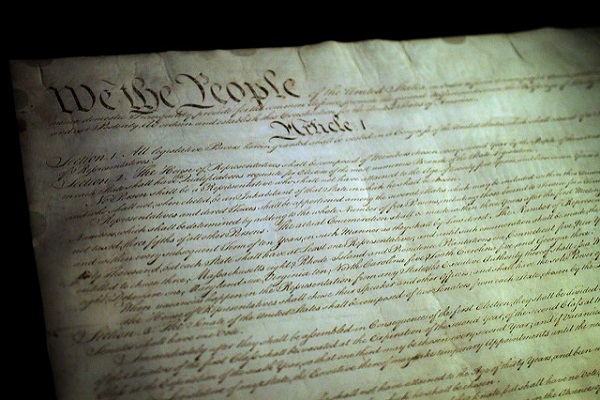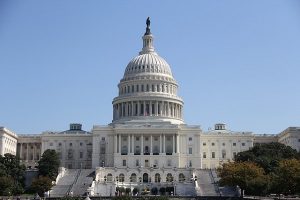
The Republic of God by Charles Franklin
- By WRN Guest --
- 14 Jan 2021 --

political prosperity, religion and morality are
indispensable supports.” — George Washington
Injustice – like two wolves and a sheep voting on what’s for dinner. Instability – when some demagogue targets a minority as the source of misfortune, inflaming bigotry and division. And confusion – when lies and rumors circulate unchecked with no system of verification.
Social media gives every person — and every nut — a voice, a following and a measure of influence. The staid well-researched news of the past lands on empty porches, replaced with supersonic gossip, divisive lies and insane conspiracy theories. Human beings are stampeded, driven by cattle prods wielded by skilled propagandists touched to festering grudges.
Violence erupts in the streets because the mob seeks revenge while the court delivers only justice. The mob wants public hangings or the guillotine, while the courts deliver fines and jail sentences.
Nothing new here – propaganda has been used forever by those seeking to manipulate others for their own ends, and our system of representative government was established to be a rational mind when rage and hatred flared in the populace – to be a buffer between raw emotion and good sense. And so a republic was established. Individuals vote for their representatives who conduct the business of government. Courts deliver impartial justice, Legislatures provide laws for all the people, an Electoral College assures that big cities and the sparse rural populations are fairly represented.
But the public and their representatives need a moral compass if a direction is to be maintained, and good sense appealed to. The United States was established by people of religious principle who thought it indispensable to governance. George Washington, in his 1796 farewell address said: “Of all the dispositions and habits which lead to political prosperity, religion and morality are indispensable supports. In vain would that man claim the tribute of patriotism, who should labor to subvert these great pillars of human happiness, these firmest props of the duties of men and citizens.”
One might ask, “How would a benevolent God seek to guide imperfect human beings who have the power of choice?” He might hand down books of laws, commandments, codes of conduct. He might emphasize love and charity and forgiveness, and appoint His own representatives on Earth to spread His message to the people. He might require responsibility and compassion and mete out rewards and penalties. And of course, imperfect human beings might then misinterpret, slant and skew everything to their own ends, to make it appear that hatred and violence, war and murder are acceptable or even condoned.
Whether secular or religious, the shepherding of human beings must account for and hold in check the dark side of human nature, seek to tamp it down while allowing free expression of “the angels of our better nature,” as Lincoln termed it.
And in that regard, a secular republic and men and women of religious principle need each other. “Separation of Church and State” is intended to keep government out of religious beliefs, to keep government from establishing a state religion and suppressing others not so established. But secular authorities without moral or religious principles have a compass swinging wildly at the whim of what will attract the most votes – whether that be government money giveaways, following a political party platform without question, or promoting and favoring one’s campaign contributors.
We have examples of great minds in politics – Washington refusing an offer to become king and leaving office after two terms, Lincoln fighting to unite the country and abolish slavery, Wayne Morse and Ernest Gruening voting against the Gulf of Tonkin Resolution, and Mitt Romney going alone against his party last February. One can argue the rightness of those decisions, but they were made by men of principle going against the easy or convenient choice, and history will judge them and their effects on our nation.
Can religion subvert government? Yes. Can government subvert religion? Yes. But as in so many other fields, religion and government in balance have a sweet spot that enables a republic to flourish, to the benefit of all.


















